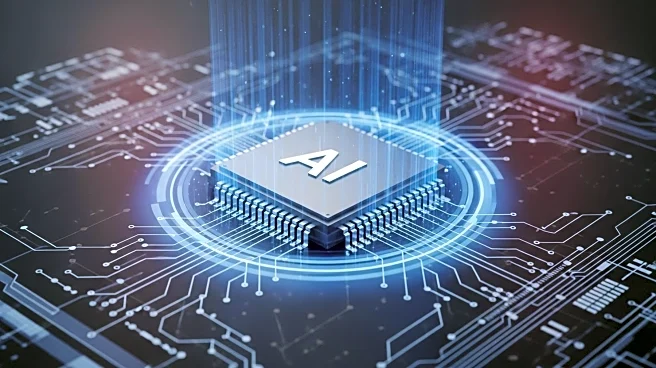What's Happening?
xAI, an artificial intelligence company founded by Elon Musk, has initiated legal proceedings against a former employee, Xuechen Li, accusing him of misappropriating confidential information and trade secrets. The lawsuit, filed in a California federal court, alleges that Li transferred proprietary documents from an xAI company laptop to his personal devices before joining OpenAI. The stolen information reportedly includes advanced AI technologies that could offer a competitive advantage to rival companies, potentially saving them billions in research and development costs. xAI is seeking a temporary restraining order to prevent Li from using or disseminating the confidential materials and to restrict him from working with competitors like OpenAI until the trade secrets are recovered.
Why It's Important?
This legal action underscores the fierce competition and ongoing talent war within the AI industry. As companies strive to develop cutting-edge technologies, the protection of intellectual property becomes crucial. The alleged theft of trade secrets could significantly impact xAI's competitive position and financial interests, while potentially benefiting competitors like OpenAI. The case highlights the importance of safeguarding proprietary information in a rapidly evolving sector where substantial compensation packages are offered to attract top talent. The outcome of this lawsuit could set a precedent for how trade secret disputes are handled in the AI industry.
What's Next?
The court's decision on the temporary restraining order will be pivotal in determining whether Li can continue his employment with OpenAI or other competitors. If the restraining order is granted, it could limit Li's professional activities and influence the strategies of companies involved in the AI sector. The case may prompt other companies to reassess their security measures and employee agreements to prevent similar incidents. Stakeholders in the AI industry will be closely monitoring the proceedings, as the resolution could have broader implications for intellectual property protection and employee mobility.
Beyond the Headlines
The lawsuit raises ethical and legal questions about employee loyalty and the handling of proprietary information. It also highlights the challenges companies face in balancing innovation with the protection of intellectual property. As AI technologies continue to advance, the industry may see increased scrutiny and regulation regarding trade secrets and competitive practices. This case could influence future policies and legal frameworks governing the movement of talent and information within the tech sector.









